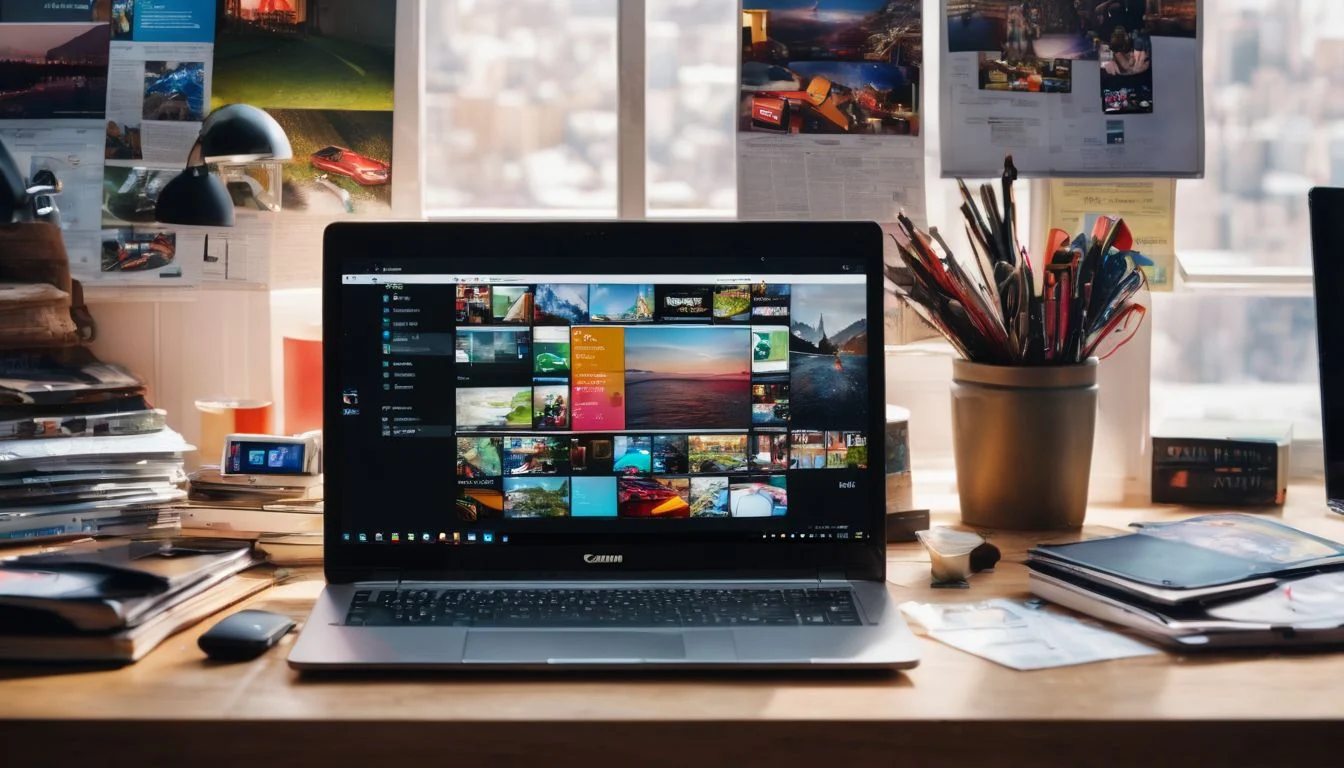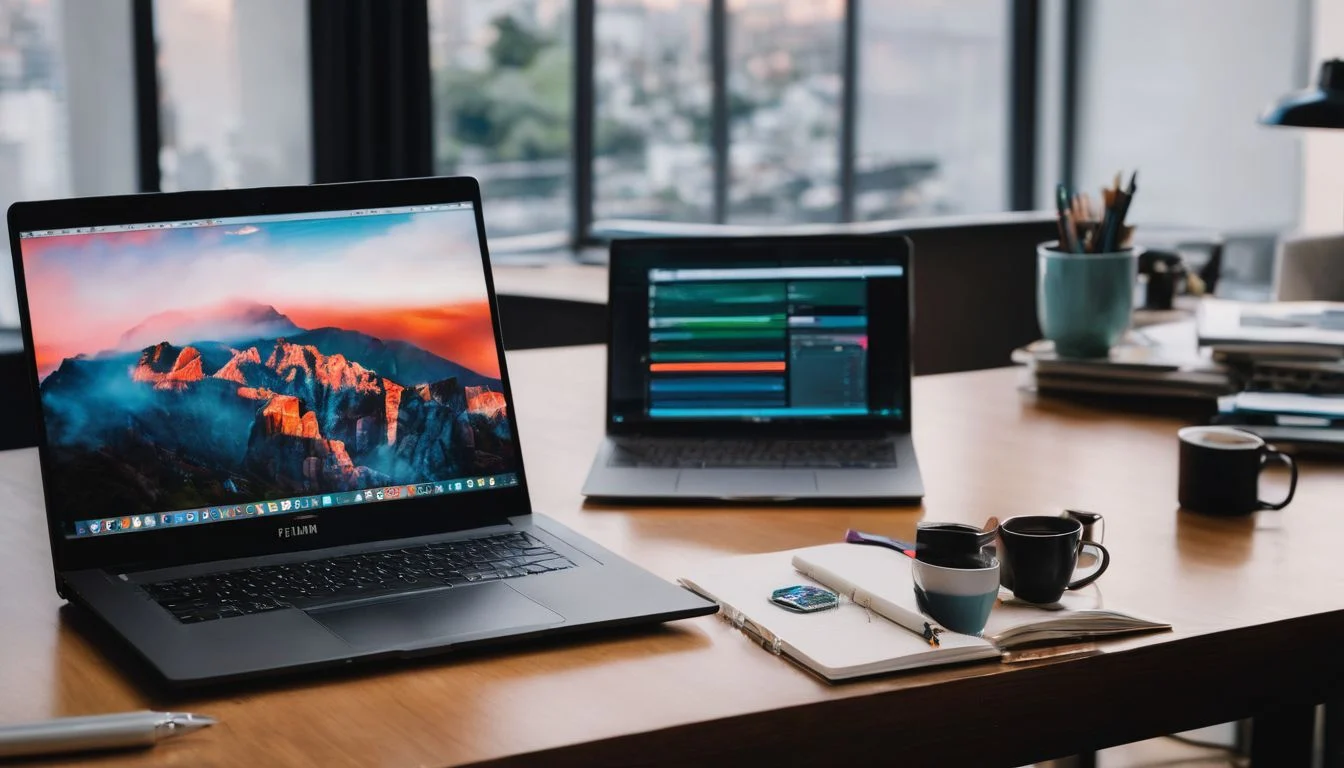Hey there, friend! Let’s talk about something important – your online privacy and security. Ever felt that little niggle in the back of your mind when you click ‘accept’ on a new app or enter your details on a website? You’re not alone.
In this digital age, keeping our personal data safe is like locking up our valuables – super important but sometimes we forget the combination to the safe!
Did you know that half of us grown-ups have been hit by nasty computer viruses? That’s right, 50% of U.S. adults have had their devices infected. It’s kind of like those annoying colds everyone catches, but for computers – and it can cost more than just a box of tissues to fix.
Fear not, though! This blog post is going to be your trusty guide through the wild woods of the web. We’ll share some top-notch tips to secure your accounts and keep pesky intruders out.
By following straightforward steps, you can keep your private information just that – private.
Ready for peace of mind online? Keep reading; it’s easier than pie!
Key Takeaways
- Use strong passwords and two – factor authentication to make it harder for others to get into your accounts.
- Limit what you share on social media and with apps, and keep an eye on privacy settings so you control who sees your stuff.
- Use a VPN when browsing the internet to hide your activities from those who might want to track or spy on you.
- Disconnect apps that don’t need access to your personal information; this helps keep your data away from people who shouldn’t have it.
- Check regularly for signs that someone may have stolen your identity, like strange charges or new accounts you didn’t open.
The Importance of Protecting Your Personal Information and Data
Moving from the basics, let’s talk about why keeping your personal information safe is vital. Every day, people like you use the internet to shop, chat with friends, and manage money.
But if someone gets hold of your details, they could steal from you or pretend to be you. This can cost a lot of cash and be very upsetting.
Keeping your data secure helps stop hackers and thieves. A big problem is that many users don’t know their country’s rules for protecting data online – 67% in the US are in the dark about this! That’s scary because each year lots of people have their accounts hacked (21%) or lose important information (11%).
The bill for cleaning up after these mess-ups is huge – think $108,000 on average for small businesses when they get hit by cyber tricks! It shows just how much damage not caring for your digital privacy can do.
Tips for Securing Your Online Accounts
To secure your online accounts, use strong and unique passwords along with two-factor authentication for an extra layer of security. Additionally, tighten privacy settings on social media and remove any unused apps and browser extensions to minimise potential vulnerabilities.
Use strong and unique passwords with 2FA
Use a password manager for creating and storing tough, unique passwords. Avoid using easily guessable information like birthdays or common words. Combine letters, numbers, and symbols to make your passwords more secure.
Enable two-factor authentication to add an extra layer of security. This requires a second form of verification along with your password, like a code sent to your phone. It makes it tougher for unauthorised people to access your accounts.
Tighten privacy settings on social media
Now that you’ve strengthened your passwords and added an extra layer of security with 2FA, it’s essential to tighten the privacy settings on your social media accounts. Take control of who sees your information by adjusting your account settings.
Limit the audience for your posts, manage what personal details are visible, and be cautious about third-party apps that access your data. Remember that cybercriminals may use this information against you if it falls into the wrong hands.
Be proactive in guarding your online presence as part of safeguarding sensitive information from phishing scams and identity theft.
Remove unused apps and browser extensions
Uninstall apps and browser extensions that you don’t use. Unused apps can still access your personal information, making you vulnerable to data breaches and privacy invasions. Cybercriminals can exploit vulnerabilities in outdated or unused software, putting your online security at risk.
Be proactive in removing these apps to safeguard your data from potential threats.
Moving on to “Additional Steps to Safeguard Your Privacy”, let’s explore more ways to protect your online privacy and personal information.
Additional Steps to Safeguard Your Privacy
Limit the information shared with apps and services, use a VPN to hide browsing history, and utilise encryption for sensitive data. To learn more about protecting your privacy online, continue reading our blog!
Limit information shared with apps and services
Be cautious about the information you give to apps and services. Some of them may collect more data than needed, increasing your privacy risks. Your personal details could end up in the wrong hands if you’re not careful.
Always review and restrict the information you share on these platforms, ensuring only necessary details are provided. Paying attention to this helps in protecting your data from misuse and potential breaches that can lead to identity theft or other harmful consequences.
By being mindful of the information shared with apps and services, you assert greater control over your online privacy. This proactive approach reduces the likelihood of unauthorised access to your personal data while using various digital platforms and services.
Use a VPN to hide browsing history
Protect your online privacy by using a VPN to hide your browsing history. A VPN encrypts your internet connection, making it difficult for anyone to track or monitor your online activity.
This extra layer of security helps safeguard your personal information and data from potential cyber threats and unauthorised access. With the increasing concern over data privacy, using a VPN is an essential step in ensuring that your online activities remain private and secure.
By utilising a VPN, you can prevent third parties from accessing sensitive information such as your browsing habits, IP address, and location. It also allows you to access geo-blocked content while maintaining anonymity on the internet.
Use encryption for sensitive data
To further safeguard your data, use encryption for any sensitive information you transmit online. Encryption scrambles your data into a code that can only be read by someone who has the right key.
This makes it much harder for hackers to access and misuse your personal information, adding an extra layer of protection against potential security breaches. In fact, research shows that 11% of online users have experienced data theft, making encryption an essential tool in maintaining the security and privacy of your sensitive data.
Protecting Your Information from Third-Parties
Revoke unnecessary app connections and regularly review the apps with access to your personal data. Request data brokers to remove your personal information from their databases and monitor for any signs of identity theft.
Revoke unnecessary app connections
Disconnecting unnecessary app connections is crucial in protecting your online privacy. Many apps and services request access to your personal information, often more than they need.
By revoking unnecessary app connections, you can reduce the exposure of your data to potential security breaches and unauthorized access. This simple step significantly minimises the risk of data theft and misuse by third-party applications and services, enhancing your overall online safety.
Consider these steps: scrutinise each connected app or service, assess the necessity of their access to your personal information, and promptly disconnect those that are no longer essential.
Request data brokers remove personal info
To further protect your personal information, you should take steps to request data brokers remove your personal info from their databases. Data brokers collect and sell personal information, putting your privacy at risk.
By requesting them to remove your information, you can reduce the chances of unauthorised access and potential misuse of your data.
Reclaiming control over your personal information is crucial in safeguarding against identity theft and maintaining online privacy. Research shows that 63% of consumers worldwide feel companies are not transparent about their use of personal data, making it essential for individuals to proactively manage how their information is handled.
Monitor for identity theft
Keep an eye on your financial accounts and statements regularly to detect any unusual activity. Check your credit report at least once a year for any unauthorised activity or errors.
Look out for signs of identity theft such as unfamiliar charges, new accounts opened without your knowledge, or unexpected changes in credit scores. Stay vigilant and report any suspicious activity immediately.
Identity theft can happen to anyone, so it’s important to stay proactive in monitoring your personal information. By keeping a close watch on your financial records and credit reports, you can quickly spot any signs of identity theft and take prompt action to protect yourself from potential damage.
Conclusion: Prioritize Your Privacy and Safety Online
In conclusion, safeguarding your online data is crucial. Implement the tips and strategies discussed here. Protecting your personal information is practical and easy to do. It can significantly reduce the risk of cyber threats.
Take action now to secure your online accounts and privacy. Stay informed about further security measures available for added protection. Your proactive approach will make a real difference in keeping your data safe.
FAQs
1. What is data security and why does it matter?
Data security means keeping your personal information safe on the internet so no one can steal or misuse it.
2. How can I keep my online accounts secure?
Use strong passwords, try multifactor authentication, and change your passwords often to help protect your online accounts.
3. What should I do to manage my personal data better?
To manage your personal data, be careful about what info you share online and use privacy settings on websites to control who sees what.
4. Are there simple tips for keeping my privacy when I’m on the internet?
Yes! You can protect your privacy by using encryption, being wary of phishing attempts, and not clicking strange links in emails.
5. Why is password protection important for my information security?
Good password protection stops hackers from getting into your accounts where they could grab your personal details or harm your data security.




